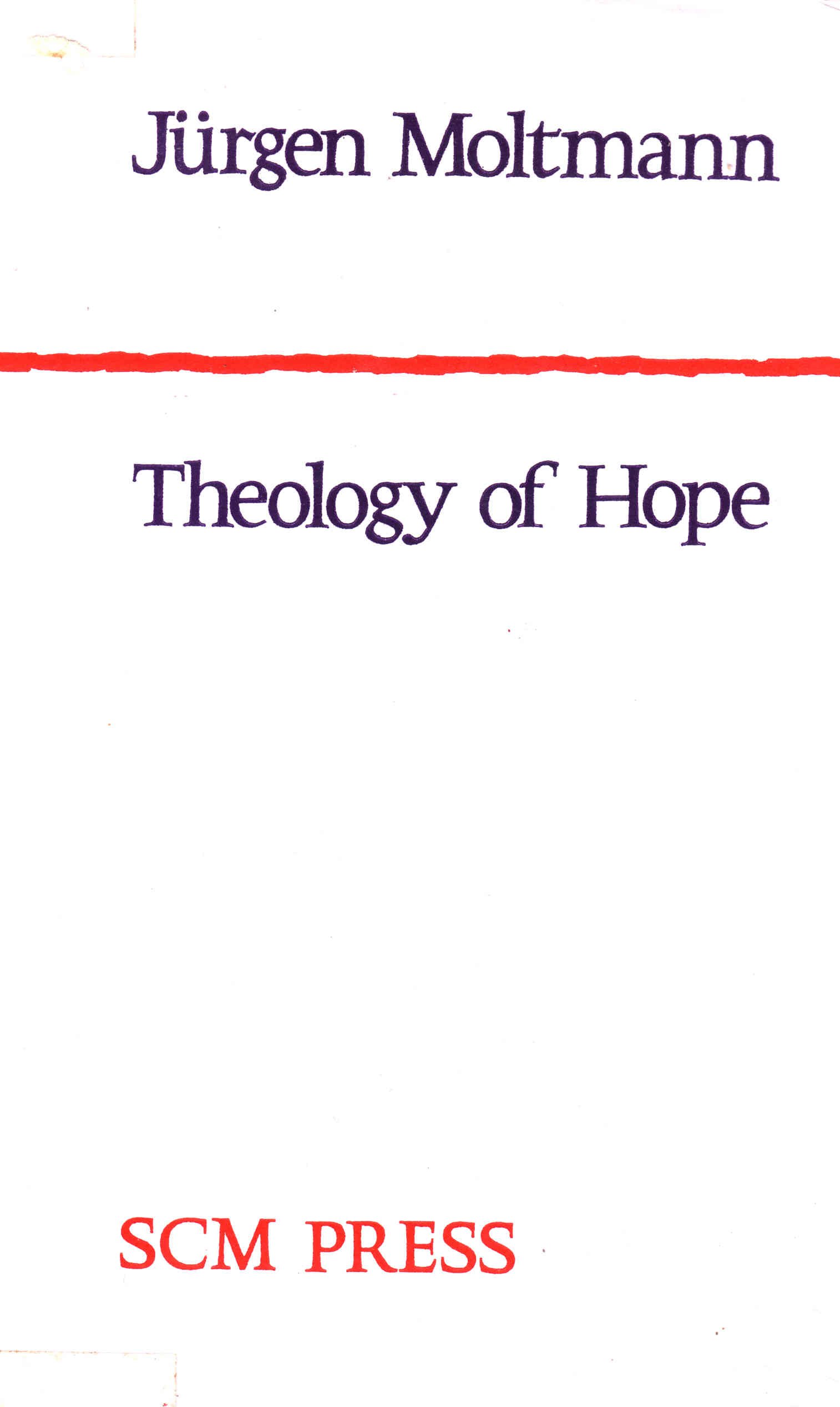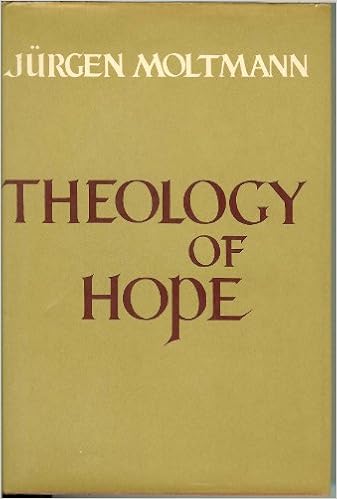Five decades after publication of his ground-breaking Theology of Hope, German theologian Jürgen Moltmann continues to insist on the power. Moltmann’s Theology of Hope is a theological perspective with an eschatological foundation and focuses on the. SCAER: JURGEN MOLTMANN AND HIS THEOLOGY OF HOPE. | 71 though much of its terminology and content are shaped in the Biblical mould. The “ theology.

| Author: | Tetilar Nanos |
| Country: | Venezuela |
| Language: | English (Spanish) |
| Genre: | Finance |
| Published (Last): | 13 June 2024 |
| Pages: | 252 |
| PDF File Size: | 6.67 Mb |
| ePub File Size: | 1.94 Mb |
| ISBN: | 652-8-63273-628-6 |
| Downloads: | 63261 |
| Price: | Free* [*Free Regsitration Required] |
| Uploader: | Akinolmaran |
Request a Review copy Please select a version: The first mode is the political meaning of freedom as supremacy. In other projects Jugen Commons Wikiquote. For the next few years —48he was confined as a prisoner of war and moved from camp to camp. Ads help cover our server costs. From Wikipedia, the free encyclopedia.
Moltmann Theology of hope Research Papers -
By using this site, you agree to the Terms of Use and Privacy Policy. Views Read Edit View history. This theological perspective of eschatology makes the hope of the future, the hope of today.

In Moltmann became a theology teacher at an academy in Wuppertal that was operated by the Confessing Church and in he joined the theological faculty at the University of Bonn. He was first confined in Belgium. To discuss your use of this title for a particular course please e-mail the Textbook Adoption Consultant for review.
Theology of Hope: On the Ground and the Implications of a Christian Eschatology
The various critical discussions should not be understood as rejections and condemnations. With its slogan of “History as Revelation”, Pannenberg’s theology has many parallels, but Moltmann was concerned to reject any notion of history as a closed system and to shift the stress from revelation to action: Moltmann has become known for developing a form of social trinitarianism. This was an early paper on the thought of Jurgen Moltmann. In addition, his development as a theologian has been marked by a koltmann imagination.
This “mutual liberation” necessarily involves a “liberation of oppressors from the evil they commit; otherwise there can be no liberation theoology a new community in justice and freedom.
The consummation of creation will consist of the eschatological transformation of this creation into the new creation. The second mode of human freedom is the socio-historical and Hegelian meaning of freedom as communion, which implies the relation between two subjects.
His theology is often referred to moktmann “Kingdom of God” Theology. They also glimpsed photographs nailed up confrontationally in their huts, bare photographs of Buchenwald and Bergen-Belsen concentration camp. Moltmann was born in Hamburg.
Altizer judgen memory of Paul Tillich. Moltmann’s widening interest in theological perspectives from a broad cultural arena is evident in his use of the book by Kazoh KitamoriTheology of the Pain of God[20] which he relates to Bonhoeffer’s prison reflections. He developed a greater concern for social ethics, and the relationship between church and society. His experience as a POW gave him a great moltmxnn of how suffering and hope reinforce each other, leaving a lasting impression jurgwn his theology.
From toMoltmann was the Robert W. While not always defensible, his eschatological schema is an important corrective for those eschatologies that ignore social justice or focus entirely on future dispensations. Archived from the original on God’s ‘preferential option for the poor’ should not be exclusive, but rather include the rich; insofar as God holds judgment over them also.
Moltmann returned home at 22 years of age to find his hometown of Molmtann in fact, his entire country in ruins from Allied bombing in World War II. Human suffering is not a quality of salvation, and should not be viewed as such.
He described his German upbringing as thoroughly secular.
At Norton Camp, he discovered Reinhold Niebuhr ‘s Nature and Destiny of Man —it jurge the first book of theology he had ever read, and Moltmann claimed it had a huge impact on his life. Bloch claims to identify an atheism at the core of Christianity, embodied in the notion of the death of God and the continued imperative of seeking the Kingdom.
However, in fact Moltmann is interested in “the content of theology, in its revision in the light of its biblical origin, and in its innovation given the challenges of the present” rather than in the questions jurgeh theological method MeeksClick here to email.
Hope strengthens faith and aids a believer into living a life of love, and directing them toward a new creation of all things. In Explanation of the Themehis introduction to the book, Moltmann acknowledges that the direction of his questioning has shifted to that of existentialist philosophy and the Marxism of the Hops Schoolparticularly Theodor Adorno and Max Horkheimer — close associates of Paul Tillich.
Moltmann in May Moltmann also developed an interest in Luther and Hegel, the former of whose doctrine of justification and theology of the cross interested pf greatly.
Description “The following efforts bear the title Theology of Hopenot because they set out once again to present eschatology as a separate doctrine and to compete with the well known textbooks. Moltmann met a group of Christians in the camp, and was given a small copy of the New Testament and Psalms by an American chaplain. Moltmann stresses the perichoresis molgmann the Father, Son, and Holy Spirit.
This theology is most clearly explained in his book, Theology of Hope. Moltmann and his fellow prisoners were tormented by “memories and gnawing thoughts”—Moltmann claimed to have lost all hope and confidence in German culture because of Judgen and Buchenwald concentration camps where Jews and others the Nazis opposed had been imprisoned and killed.
Moltmann continued to see Christ as dying in solidarity with movements of liberation, God choosing to die with the oppressed. He took his entrance exam to proceed with his iurgen, but went to war instead as an Air Force auxiliary in the German army.
Remember me on this computer.
